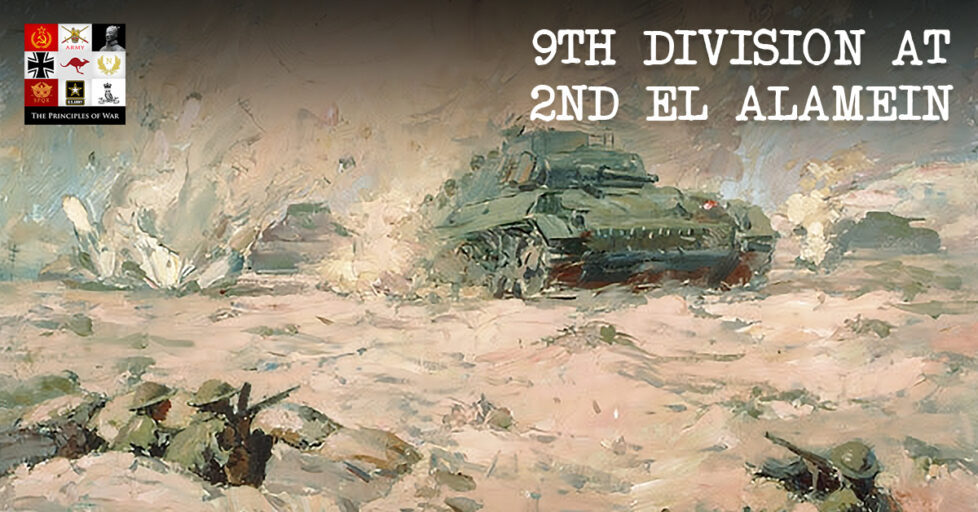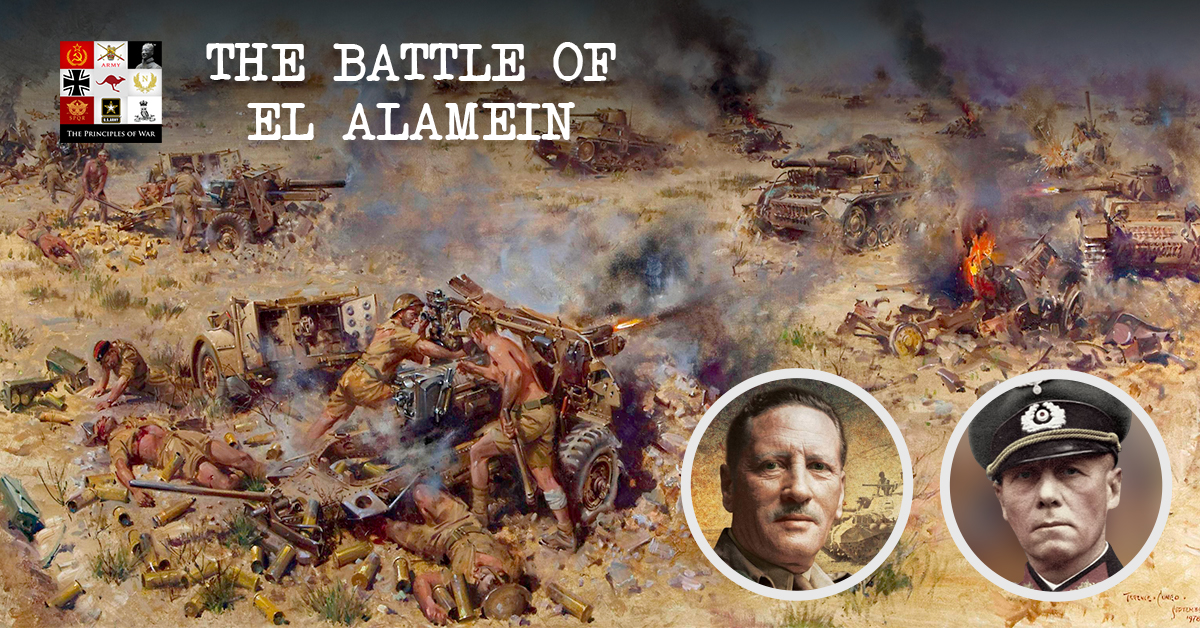This is the 6th episode in our El Alamein series. These are the show notes to the episode – have a listen to the podcast to get the full story.
This episode looks at the conduct of the 2nd Battle of El Alamein, the impact that it had on the Second World War and the lessons learnt. We look at the role that 9th Australian Division played in this important battle.
2nd Alamein sees part of the Empire together, XXX Corps, under LT GEN Oliver Lees, had 9th Australian, 51st Highland, 2nd New Zealand, 1St South African and 4th Indian Divisions with 23rd Armoured BDE in reserve.
This episode looks only at Operation Lightfoot, and examines the battle predominantly from the viewpoint of the 9th Australian Division and the critical role that they played in the fighting.





Here is the end of the speech from LT GEN Harold Alexander as he addresses the troops of 9th Div after the battle. Read the full text in our Australian Military Quotes page.
There is a hard and bitter struggle ahead before we come to final victory and much hard fighting to be done. In the flux and changes of war, individuals will change. Formations will move from one theatre to another, and where you will be when the next battles are fought I do not know. But wherever you go, my thoughts will always go with you and I shall follow your fortunes with interest and your successes with admiration. There is one thought I shall cherish above all others – under my command fought the 9th Australian Division.
Key Lessons Learnt from 2nd El Alamein
- Logistics was key. The PAA was set up for logistics based on internal lines of communication, not expeditionary log. It didn’t have the personnel and couldn’t keep the fuel in particular. Allies reading Enigma traffic could target tankers and convoys.
- Deception works. Op Bertram kept Rommel in the dark as to the main effort and axis of advance for Op Lightfoot. He was also deceived as to the timing – hence he left for Germany for medical treatment. With low fuel reserves, he had to be very sure of the main effort and this denied him the opportunity to develop overwhelming combat power simultaneously with his 2 Panzer divisions.
- Information Asymmetry. The capture of Unit 621 and the capture of spies in Cairo denied Rommel situational understanding, just as Montgomery started reading Ultra decrypts.
- Training, training, training. Montgomery was an excellent trainer of troops. He used the time he from taking command of 8th Army until Lightfoot to get companies, battalions, brigades, divisions and corps all working together.
- Artillery. Infantry, with prodigious amounts of artillery, can take heavily defended positions and hold them if supported with enough artillery. This was a lesson he learnt from WW1 and his BRA (Brigadier, Royal Artillery), Sidney Kirkman ensured that the troops received the support in the quantities required.







